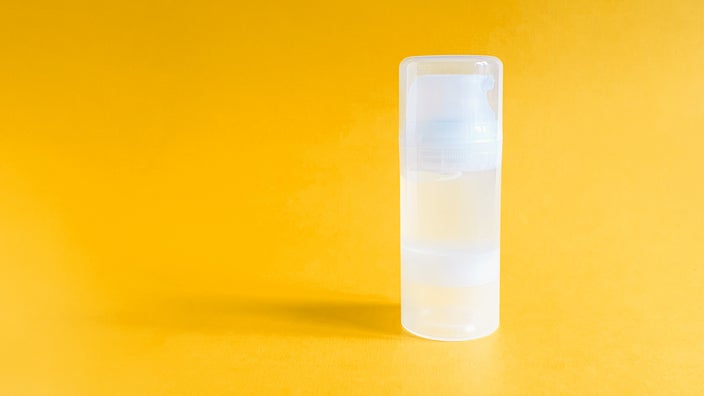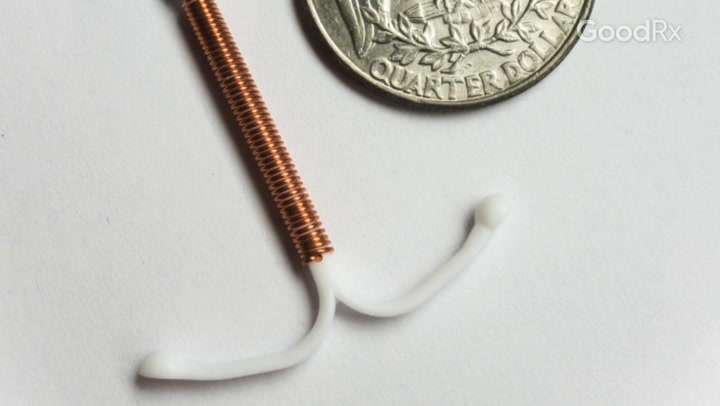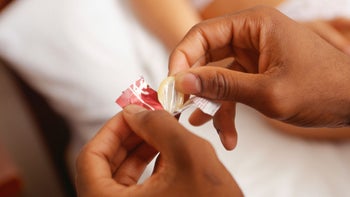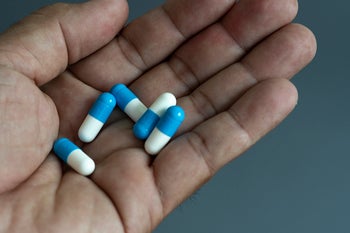
The Best Lube for Sex: How to Choose the Right Type
Key takeaways:
Personal lubricant (lube) can make sex more pleasurable and safe. The best lube for you depends on your personal preferences, and what type of sexual activities you enjoy.
Water-based lube is great for many sexual activities, is easy to clean up, and won’t damage condoms or sex toys.
Silicone-based lube is harder to clean up but is a good choice for anal sex.
Table of contents

Whether you’re flying solo or having fun with a partner, choosing the right lubricant (lube) can take your sex life from good to great.
Your vagina makes its own lubricant when you’re turned on. But other body parts, like your penis or your anus, don’t lubricate themselves at all. And vaginas don’t always make as much lube as you need or want.
That’s why lube is one of the best things you can add to your sex life — no matter what types of activities you enjoy. The truth is: Lube can make sex more pleasurable and safer.
But even if you’re sold on lube, it can be hard to know which type to choose. Keep reading for more info about the different types of lube, when and how to use them, and how to find a lube you enjoy.
What is lube?
So what is lube? Lube is short for “personal lubricant.” It’s a liquid or gel that you use during sex to minimize friction and keep things rubbing together smoothly.
Using lube during sex can:
Reduce pain and discomfort
Increase your pleasure
Protect you from vaginal or anal tearing
Lower your risk of sexually transmitted infections (STIs)
Lube can be used during vaginal, oral, or anal sex. Some people also enjoy using lube while masturbating or playing with a sex toy.
What’s the best condom? Condoms come in many varieties. Learn more about the different types of condoms, and how to choose the right ones for you and your partner(s).
Why does sex hurt all of a sudden? Not having enough lubrication can sometimes make sex feel uncomfortable, or even painful. Read about some common causes of pain during sex, and what you can do to make sex more enjoyable.
Do I need to use lube for anal sex? Yes! Anal sex has some risks, but it’s generally considered safe — especially when you use condoms and lube. Here’s what you need to know.
What types of lube are available?
When it comes to lube, the choices can be a bit overwhelming. Here’s what you need to know about the four main types of lube.
Water-based lube
Water-based lube is a great choice for most sexual activities. It’s safe to use with condoms, vibrators, and silicone sex toys. It’s also easy to clean up and won’t stain your clothing or sheets.
The downside? Water-based lube dries out more quickly than other types of lube, so you may need to reapply it during sex. It also doesn’t hold up well in water, so it’s not the best choice for shower or bath play. And beware: Some water-based lubes contain glycerin, which can cause vaginal irritation and yeast infections.
Read more like this
Explore these related articles, suggested for readers like you.
Silicone-based lube
This is a thicker and more long-lasting lube. It’s also safe to use with condoms. These features make it a great choice for anal sex. It also holds up well in water — though watch out for slippery floors if you use it in the shower.
But keep in mind: Silicone-based lube is harder to clean up and can stain your sheets and clothing. In fact, you’ll probably need soap and water to get the job done. You also can’t use silicone-based lube with silicone sex toys, as it will eventually damage them.
Oil-based lube
Just like silicone-based lube, oil-based lube is silky and long-lasting, and it holds up well in water. It’s great for external sexual activities, like a hand job or sensual massage, though it can be hard to clean up. Oil-based lube is available commercially, but some people prefer to use edible oils like coconut or olive oil — the same ones you’ll find in the kitchen.
One word of warning: If you’re using a condom or having penetrative sex, oil-based lube is not the best choice. This is because oil-based lube can damage some condoms, putting you at risk of STIs or unwanted pregnancy. It can also irritate your genitals.
Aloe vera-based lube
This is a lube made from aloe vera plants. It’s natural, hydrating, and safe to use with condoms. The catch? It dries out faster than other types of lube and can be harder to find at the store.
Some lube also has extra ingredients added to create special effects, like a numbing or warming sensation. Lube also comes in different flavors. And in some states, you can buy lube that includes cannabis or CBD.
What’s the best lube for sex?
The truth is, there’s no one single “best” lube for sex. What really matters is finding the best match for your personal preferences. The best one for you depends on the type of sex you enjoy, whether you use condoms, and even where you have sex.
Let’s take a closer look at the best types of lube for different situations.
Best lube for anal sex
Lube is absolutely essential for safer anal sex. Your anus doesn’t make any lubrication naturally. Using lube can prevent tears and injury.
Water-based or silicone-based lube are both great choices for anal sex. Silicone-based lube lasts much longer, but it can irritate some people’s skin and is harder to clean up.
Remember to stay away from oil-based lube if you’re using condoms. And skip the numbing lube as well. Numbing lube can make it harder for you and your partner to be aware of what hurts and what feels good — which can lead to injuries.
Best lube for sex with condoms
Water-based and silicone-based lube are both safe to use with condoms. And remember: If you’re using a condom, stay away from oil-based lube. It can damage some condoms and cause them to break.
Not sure if your condom can be used with lube? Check the instructions on the condom label. The label will also tell you whether your condom is pre-lubricated or not.
Best lube for oral sex
Go for a water-based lube that’s free of chemicals and parabens. You can also use oil-based lube if you’re not using a condom. Some lube has organic or natural flavors added that can enhance your fun.
Best lube for silicone sex toys
You can use any lube with sex toys, with one exception: Don’t use silicone-based lube with silicone or jelly toys. This can damage your toys over time.
Best lube for shower sex
Silicone-based lube works well in the shower or bathtub. In fact, it holds up so well that you’ll probably need soap and water to get it off.
Best lube for getting pregnant
Lube can’t help you get pregnant — but using the wrong type of lube can make it harder to conceive. That’s because some types of lube can get in the way of sperm motility and fertilization.
If you’re hoping to get pregnant, look for a lube that’s in the FDA “fertility-friendly” category. Products in this category have been extensively tested and found to have no negative effects on sperm, eggs, or fertilization. Fertility-friendly lubes also have a neutral pH and are free of glycerin and parabens.
Fertility-friendly lube brands include:
Pre-seed
ConceivePlus
BabyDance
BioGenesis by Good Clean Love
JO Actively Trying
You can also look for a lube that says “sperm friendly” or “fertility friendly” on the label.
Can you use lotion or Vaseline instead of lube?
No. It’s not a great idea to use other slippery products in place of lube, like moisturizing lotion or Vaseline. These products often contain ingredients that damage condoms and cause skin irritation.
It’s also worth mentioning that all “personal lubricant” sold in the U.S. has to be evaluated by the FDA. That means that when you purchase lube, you can trust what’s on the label.
Are there some lubes you should avoid?
Yes — especially for vaginal health. Some lubes have added ingredients that can irritate skin and make you more likely to get a yeast infection or a UTI.
It’s a good idea to stay away from lube that contains:
Glycol
Glycerin
Fragrances
Added dyes or colors
Alcohol
If you notice burning, itching, or a rash after using a certain lube, you might have a mild allergy to one of the ingredients. Consider switching to a different product. And keep in mind: Products with fewer ingredients may be less likely to irritate your body.
The bottom line
Lube can make sex safer and more pleasurable, no matter what activities you enjoy. If you’re new to lube, a water-based lube is a great place to start. It’s good for all sexual activities and is easy to clean up. Also, it won’t damage condoms or sex toys. And if you need something a little thicker or longer lasting, consider trying silicone- or oil-based lube. And remember: It’s OK to experiment. Finding the right lube can take time, but it’s one of the best things you can do for a healthy and enjoyable sex life.
Why trust our experts?


References
International Society for Sexual Medicine. (n.d.). What is a lubricant?
Johnson, G. M. (2017). The importance of using lube during sex. TheBody.
National Personal Lubricant Association. (n.d.). FDA.
Planned Parenthood. (n.d.). How do I make sex safer?
Planned Parenthood. (2024). How do you use lube with condoms?





























